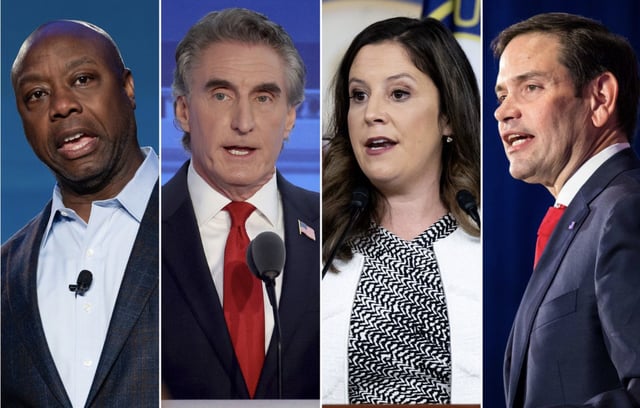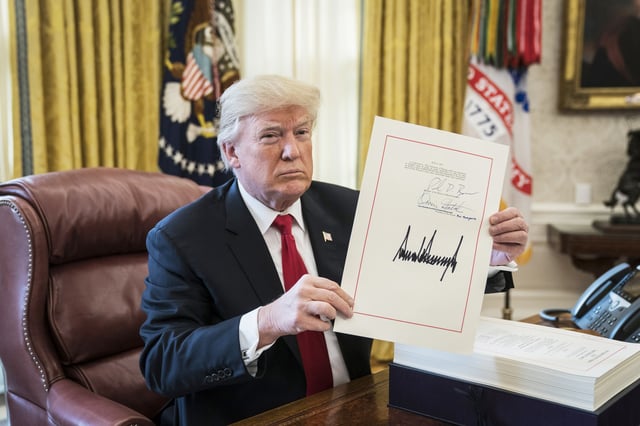Overview
- Republicans seek to extend individual tax cuts from 2017 set to expire in 2025.
- Proposals include reducing the corporate tax rate below the current 21%, potentially to 15%.
- Analysts estimate a significant increase in the national debt if these cuts are implemented.
- The Biden administration criticizes the plans as favoring wealthy corporations over middle-class Americans.
- Debate intensifies as the GOP prepares for potential control of Congress and the White House in upcoming elections.

